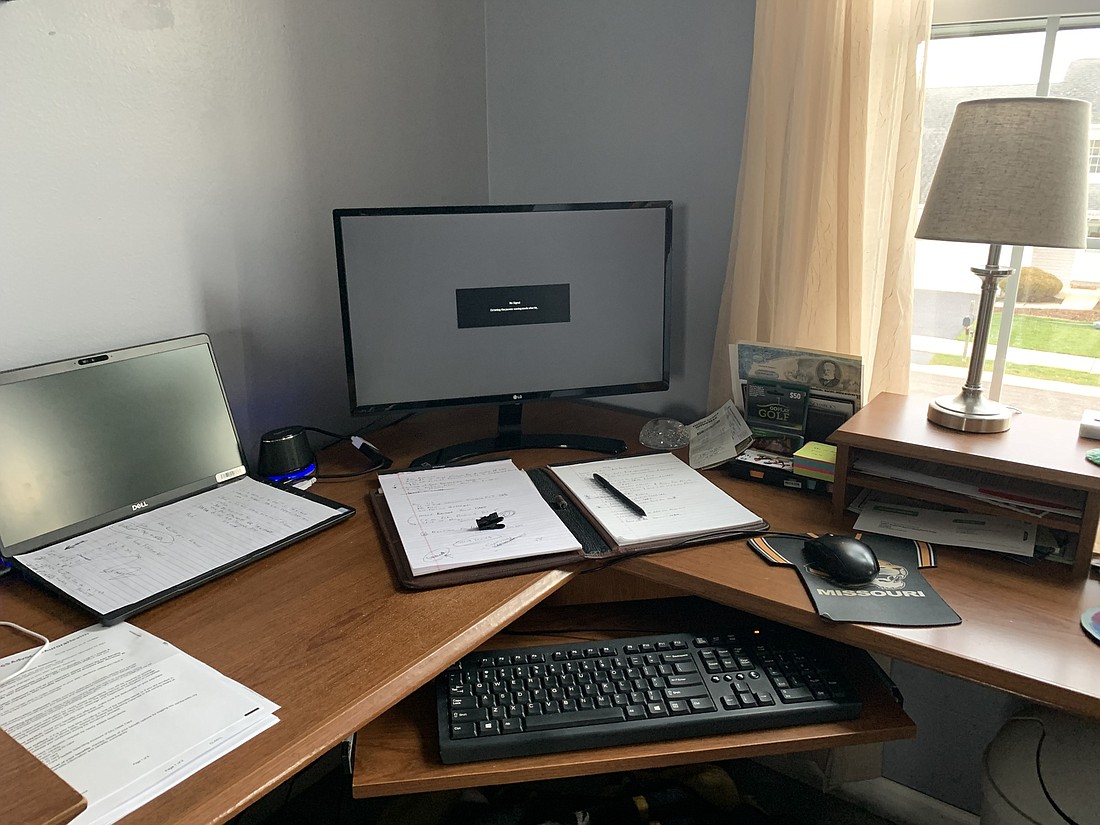- March 14, 2025
-
-
Loading

Since the pandemic began in March, more and more people are finding themselves working from home, which isn’t always easy.
For some, working from home is an excellent option that allows them to be comfortable in their own space while still maintaining productivity.
For others, being at home all the time is a nightmare. They miss the social interaction with coworkers, they can’t focus, or they feel they’re falling into a slump.
No matter whether you’re working from home as a result of the pandemic, or you choose to work from home, Jane Kuhn, a retired licensed clinical social worker of 21 years and the vice president of the Lakewood Ranch Community Emergency Response Team, said working from home can’t get in the way of taking care of yourself.
“[For those who choose to work from home], it’s not stressful for them, and they find ways to make it work within their lives,” Kuhn said. “Those people who don’t have the choice right now are being told they have to work from home, and it’s one more thing that’s taken out of our control.”
The key to maintaining good mental health while working from home is ensuring there is a separation between working and leisure, Kuhn said.
“You need to make that separation between ‘I’m working now,’ and ‘Now I actually get to relax,’” she said. “If you are doing your work in your relaxed, happy place, like your bed or on your couch, then where do you go to relax? Where do you go to separate that out and say: ‘OK, I’m done now. I get to just do whatever I want and do nothing.’”
As part of instilling that separation, set a schedule, and make it a habit of starting work at the same time every day.
“It’s going to take a lot of self discipline, but it’s so important to set that alarm, and it’s not just ‘I know I’ll wake up early,’” Kuhn said.
Working from home can be overwhelming, just like in the office, so it’s important to remember to take breaks, whether that’s going for a walk around the neighborhood, doing an exercise video or eating away from the designated workspace.
“Try to carve out maybe a half hour, maybe an hour, during the day, and then get back to work,” Kuhn said. “You might find that you get more of the work done because your mind is a little bit more alert again.”
This year, families have had to adjust to not only working from home but also children being at home with e-learning. Although many students have returned to school, some are still at home doing e-learning, which can be stressful for parents.
Kuhn suggests separating education from home life as well. Take the time that went toward getting the kids dressed for school and making lunches in the past, and put it toward getting the kids set up for e-learning.
Parents should also separate their workspaces from where their kids are learning at home to minimize distraction from listening to the students’ classes and wondering if everything is going well.
Another health concern Kuhn has noticed is people feeling too isolated from having to work from home, and isolation can lead to depression.
Kuhn recommends setting aside a few minutes per day to video call someone to have a face-to-face conversation with another person.
Talking over the phone or doing a video call with other people working from home can help replace the lack of social interaction someone would normally get if everyone was in the office.
“Find colleagues who are probably doing the same thing, and commiserate with that because that’s really what you’re doing at work — you’re sharing,” Kuhn said. “You know your common goals but also your common stressors.”